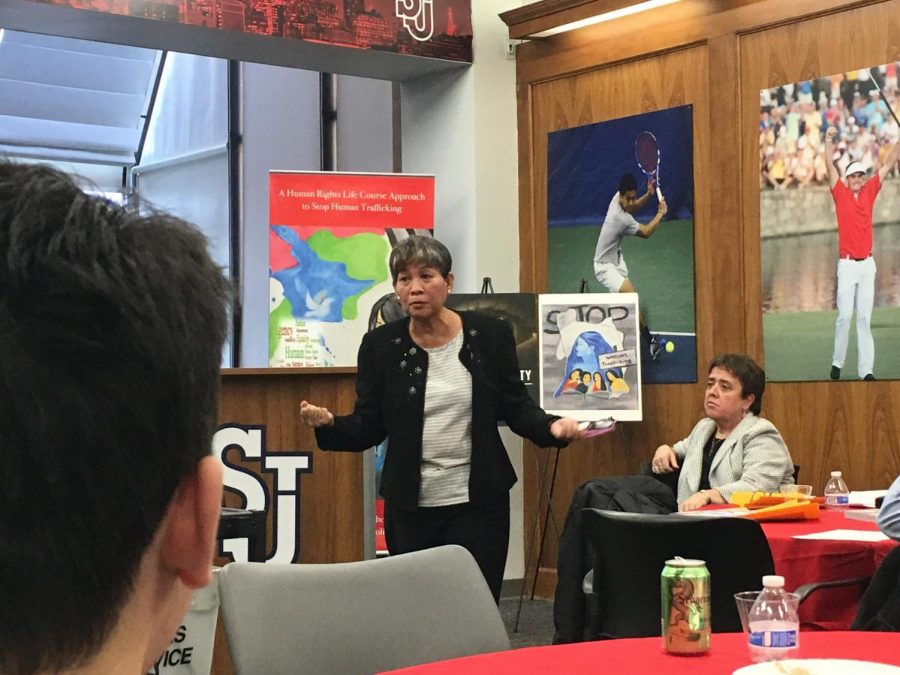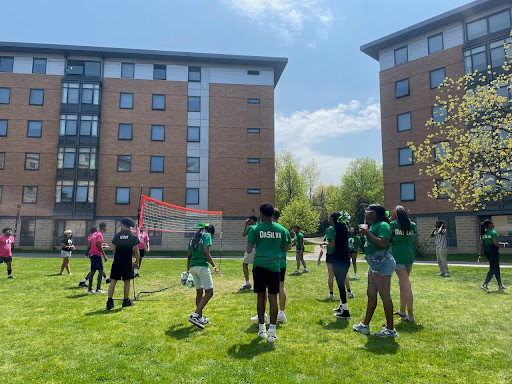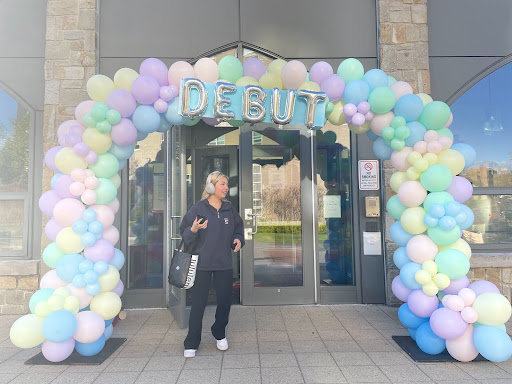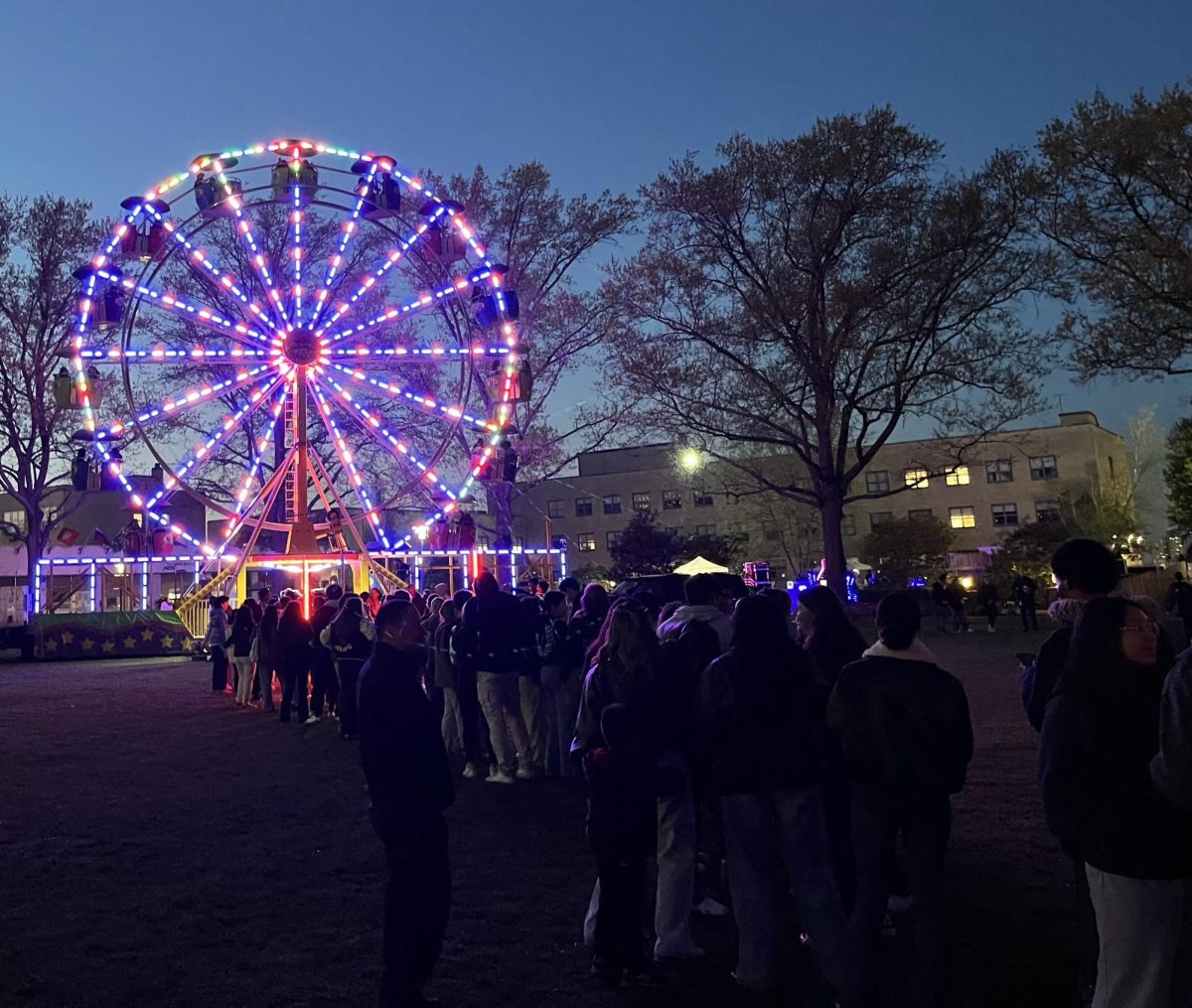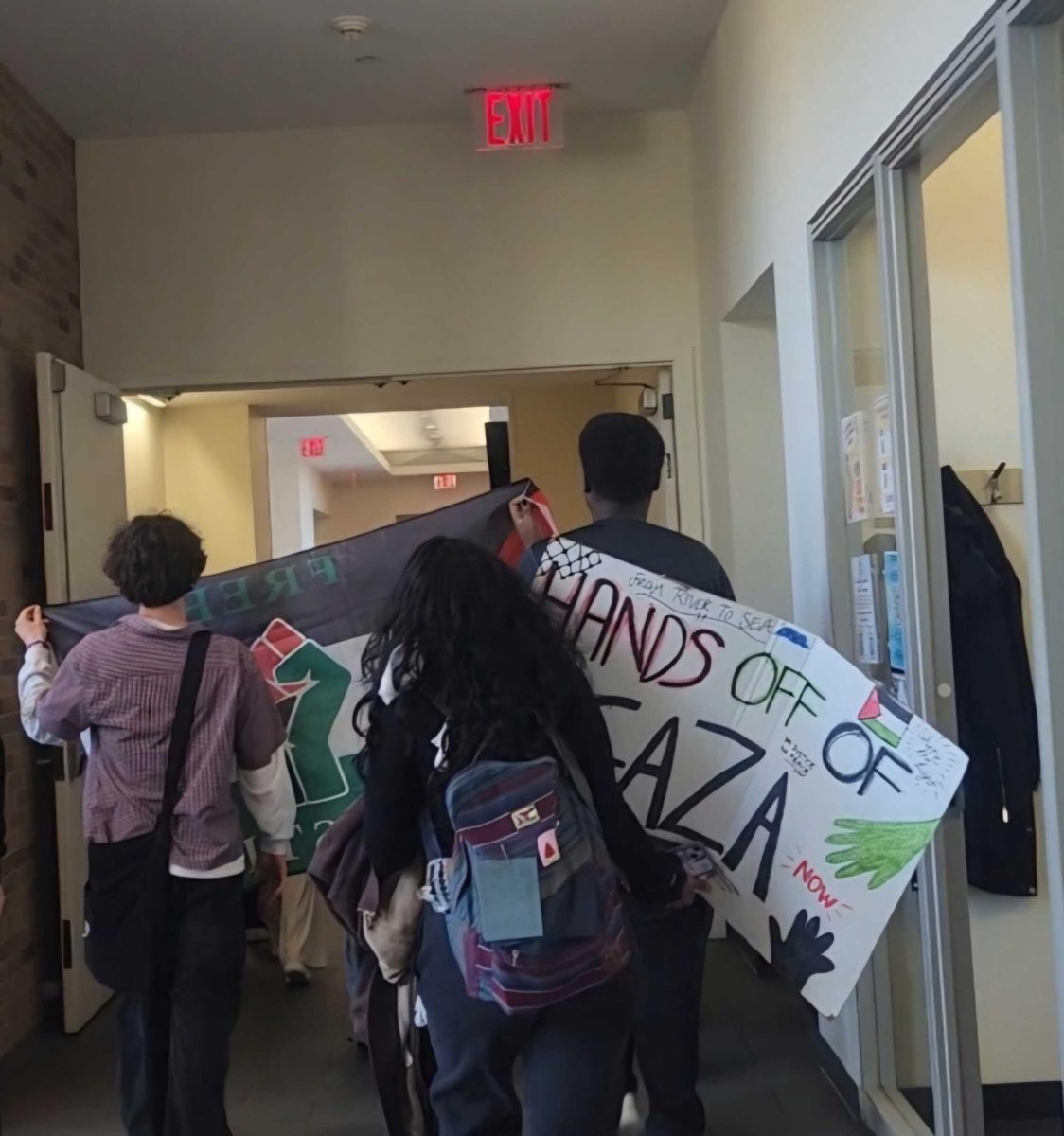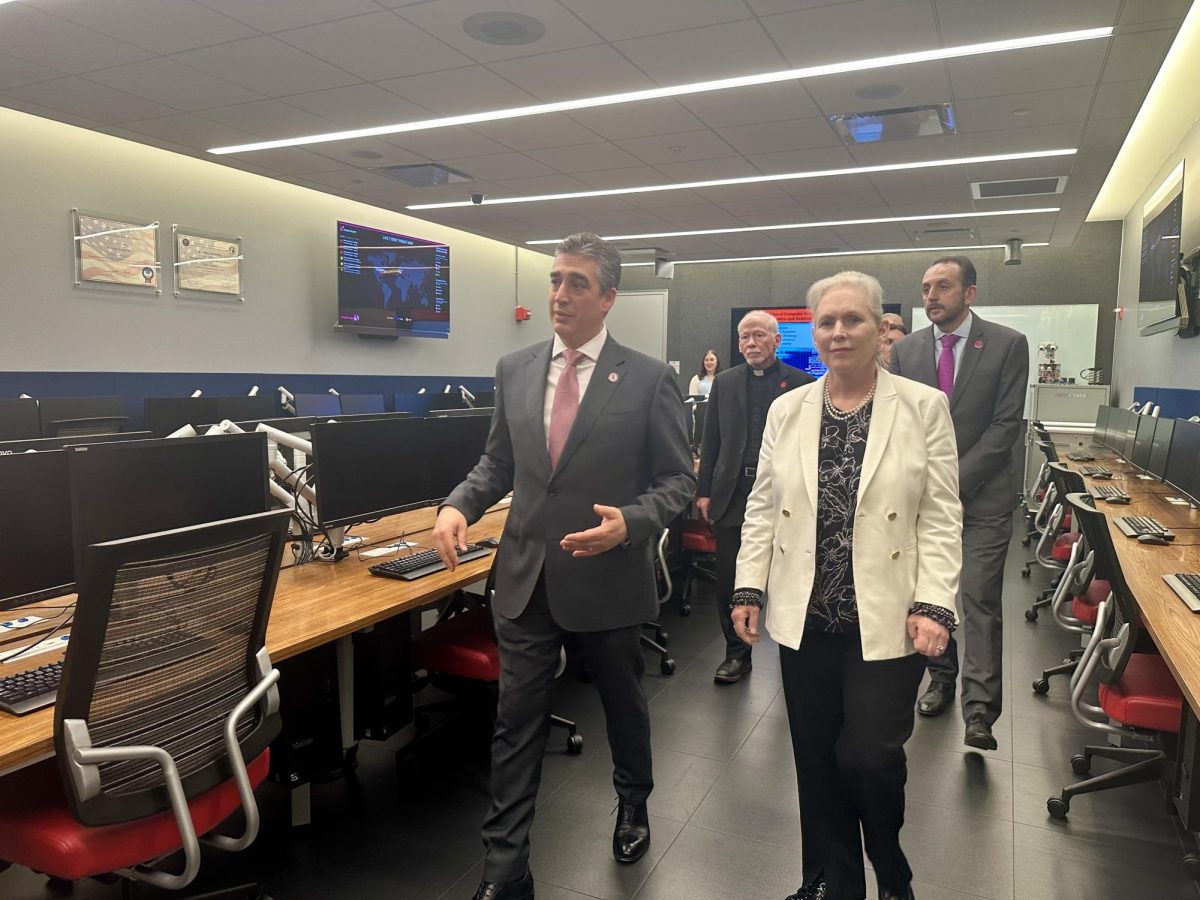Faculty, administrators and students gathered to listen to the stories and experiences recounted in “Human Trafficking Unveiled: Women Speak Out,” organized by Catholic Relief Services, Ladies of Charity, St. John’s Vincentian Center for Church and Society and Mercy Global Action at the United Nations.
“I want to raise awareness and tell the world, that my story isn’t just a story, it’s a reality,” Mely Lenario, an activist and survivor of sex trafficking in Cebu, Philippines, said to those seated in the President’s Room on Tuesday, March 19.
As she spoke, several paintings by Sr. Venus Marie Pegar SFX and commissioned by survivors of human trafficking stood around her.
The event featured Lenario, University of Southern Philippines Foundation Professor Marietta Latonio and RSM of Mercy Global Action, Sister Angela Reed.
From globalization, economics, migration, gender, organized crime, local reasons (for the Philippines, this meant the presence of the American military, sex tourism and the effects of colonization) to human rights violations — each affect how action is taken against human trafficking and are also supported by a media image.
“The reality is that we need to integrate all of those lenses and see that human trafficking is a result of a complex set of circumstances… if [the media image of chains] is the dominant way in which we see it, then we miss the ordinary people who are trafficked,” Reed said.
“A lot of the times we hear stories about human trafficking and how it happens, it’s moreso the stereotypical television scheme of events that we kind of anticipate when in reality, as in Mely’s instance, the story originated with abuse in her own home,” freshman attendee Vanessa Cole said.
“Those who have experienced trafficking are our best teachers and can lead us to direct policy action,” Reed said.
At its core, the advocacy against human trafficking needs to feature the voices and agency of trafficked women.
“Four nights a week, I visit different areas to walk with girls, greet them, build relationships and tell them about our programs and services… I would say we have common stories but different experiences of abuse,” Lenario said.
Before Lenario told her own story of abuse, which began in her childhood home, she explained that, “Some girls are forced into prostitution to support their children. I [have] seen this lady become a prostitute because her contract in the department store ended. Young girls support their siblings because their parents are into drugs.”
When she traveled to Cebu to study to become a nurse, her and several other students were cocerced by a woman, who promised them laundry work, into sexual labor.
St. John’s President Conrado “Bobby” Gempesaw attended the event and gave his take on the matter in a comment to the Torch.
“The problem that she shared is not unique to poor countries. I think it also happens here in our own country,” Gempesaw said.
“Within a few miles of where we are, these things could be happening and if there is anything that we can do as a university — first and foremost to educate people — and that if we see someone going through that process or experiencing that, that we can reach out and help,” he added.
The advocates listed several initiatives that need to be taken in order to lessen the reality of sexual trafficking — involving non-governmental organizations, policy-makers and local leaders.
With these and many more, the return rate of survivors into prostitution could decrease from current rates of 80-90 percent.
“If only we learned how to listen, then we would be able to better understand them because at the end of the day, what they need is a chance to be heard and a chance to be accompanied through the journey,” Lenario said.













